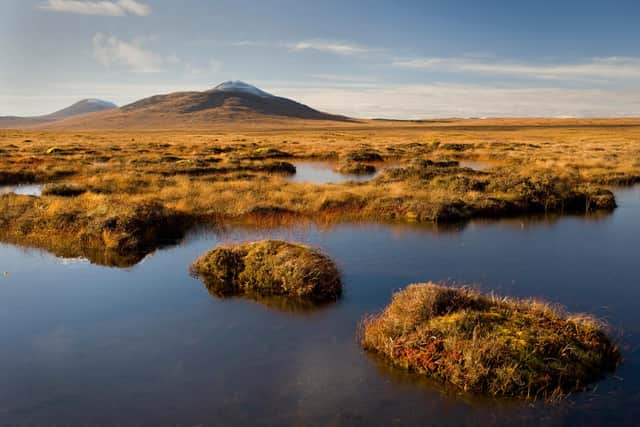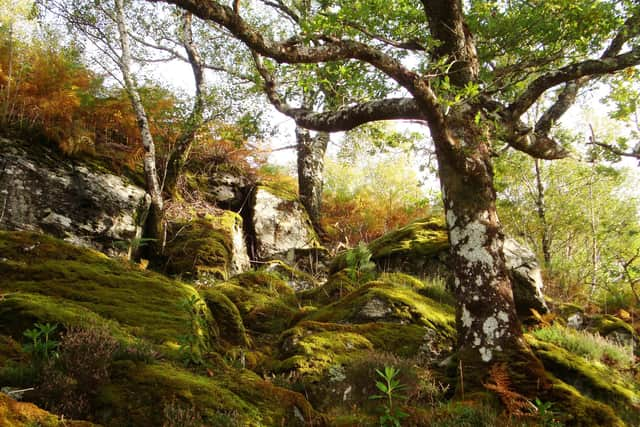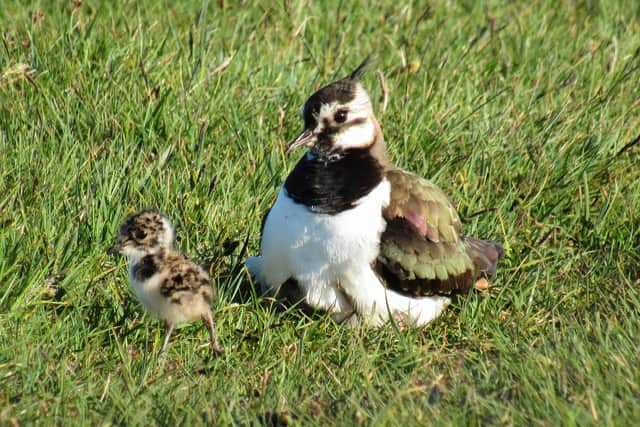Post-Covid nature recovery plan set out
The findings come from a new report which sets out an 11-step recovery plan that aims to create jobs, boost local economies and improve public health while protecting the planet.
Launched by environmental charities RSPB Scotland, Scottish Wildlife Trust and WWF Scotland, the paper details “transformative” actions that will help Scotland’s nature and “build a fairer future for all”.
Advertisement
Hide AdAdvertisement
Hide AdIt highlights five areas for immediate action from the Scottish Government: restoring and protecting Scotland’s globally important peatlands; replacing and expanding native forests; improving deer management; creating a new system to support eco-friendly farming; and linking up wild places through a new Scottish Nature Network.


Other proposals include introducing new legislation to achieve sustainable, low-impact fishing; licensing driven grouse shooting businesses; ensuring all new development is net-positive for nature; ending burning on peatland and commercial extraction of peat for horticulture; creating new rules to improve use of nitrogen; establishing a Scottish inspectorate to tackle invasive non-native species; and committing to at least a third of Scotland’s seas being highly protected.
The report has been supported by 22 other Scottish environmental organisations.
“Nature is our life support system, but it is in trouble,” said Jo Pike, chief executive of the Scottish Wildlife Trust.
“Time is running out to secure the transformative recovery needed to address the crises facing our natural environment, our climate and our economy.


“Despite welcome recognition by the Scottish Government that investing in nature is an essential step towards a new economy based on improved well-being, we still need a plan that sets out what action will be taken to support nature’s recovery, and how it will be funded.
“From protecting peatlands and restoring native woodlands to connecting fragmented wildlife habitats and ensuring our seas are sustainably managed, urgent action on the measures identified in our report can help underpin a truly transformative green recovery.”
WWF Scotland director Lang Banks said: “Scotland is rightly proud of its diverse and unique wildlife, but we need to wake up to the fact that many species are increasingly under threat from climate change.
Advertisement
Hide AdAdvertisement
Hide Ad“Even small increases in temperature threaten many of the plants and animals that give Scotland its iconic landscapes, but that we also depend on for food, protection from flooding, and absorbing carbon pollution.


“The fact is that we cannot tackle the climate crisis without also addressing the emergency facing our natural world.
“We need urgent action and funding for nature, supported by legislation and a strong watchdog to hold the government legally accountable for protecting and restoring our precious habitats and species.”
Anne McCall, director of Scotland for the RSPB, added: “Like many people, getting out in nature was vital for me during lockdown, but we know we must do a lot more to ensure that nature can thrive across Scotland and to ensure that everyone can access the delights and inspiration that wildlife can bring.
“Delivering this suite of actions and prioritising investment in habitat restoration as part of a green recovery will help to build a more resilient, nature-rich Scotland.”
A message from the Editor:
Thank you for reading this story on our website. While I have your attention, I also have an important request to make of you.
The dramatic events of 2020 are having a major impact on many of our advertisers - and consequently the revenue we receive. We are now more reliant than ever on you taking out a digital subscription to support our journalism.
Subscribe to scotsman.com and enjoy unlimited access to Scottish news and information online and on our app. Visit https://www.scotsman.com/subscriptions now to sign up.
By supporting us, we are able to support you in providing trusted, fact-checked content for this website.
Joy Yates
Editorial Director
Comments
Want to join the conversation? Please or to comment on this article.